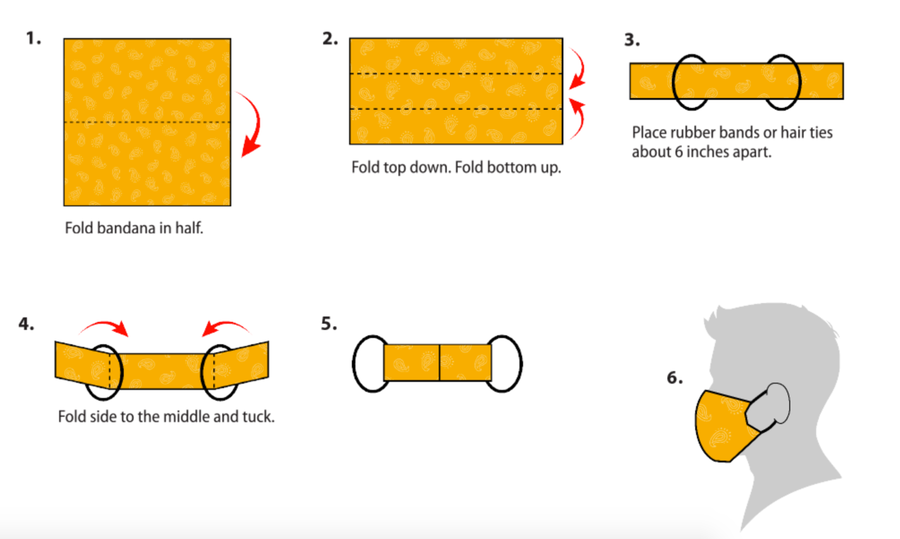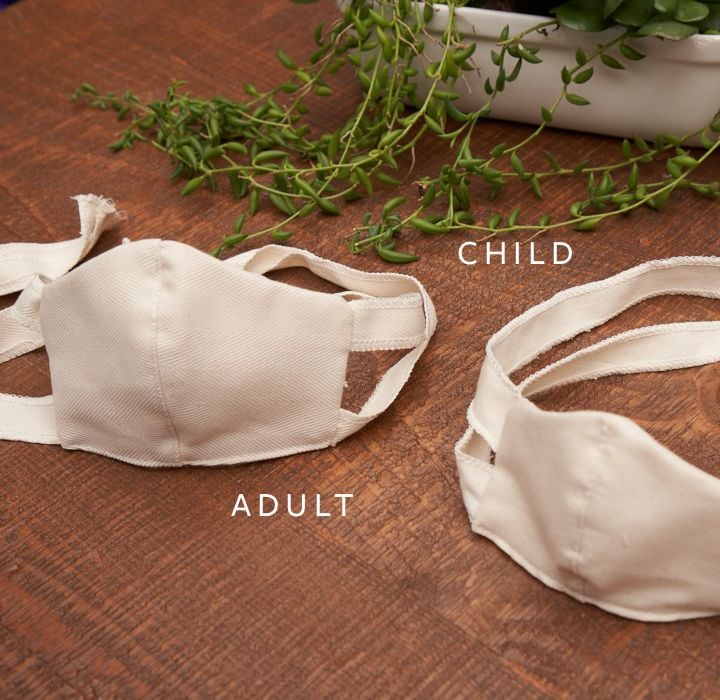3 Ways to Make Your Own CDC-Approved Face Masks
The Center for Disease Control and Prevention now recommends using face coverings in public settings like grocery stores and pharmacies to slow the spread of the novel coronavirus and its associated disease COVID-19, but it’s important not to compete with medical professionals and other essential workers for the few N95 and surgical masks that are still available.
A variety of small businesses are now offering cloth masks for sale at a range of prices, including organic cotton options, but you can also make some yourself, whether you have a sewing machine or not.
The most important considerations for a CDC-compliant face mask are breathability and washability. Cotton fabrics can help block viral aerosols without making it harder to breathe, which is especially important if you happen to be infected with COVID-19 but don’t have symptoms yet. Above all else, multiple layers of a tightly woven natural fabric like quilting cotton or cotton sheets are the most effective of DIY cloth options.
Bandana and Hair Elastic Method
First up is the easiest DIY no-sew cloth mask, which just requires a handkerchief and two hair elastics. Demonstrated on YouTube by Japanese Creations, this tutorial takes just a couple minutes of simple folding to complete.
Coffee Filter Method

A slightly more protective option adds a coffee filter in the middle of a layered bandana. First, fold your square bandana in half, cut the coffee filter horizontally across the middle, and place the wide section of the filter in the middle of the folded bandana. Then, fold the bottom third of the bandana up to the middle and the top third down, as directed in the CDC’s no-sew method. Loop a rubber band or hair tie around each end, leaving a few inches of fabric on either side to fold inward. Then loop the elastics around your ears, and viola! A perfectly usable face covering.
Pleated Fabric Method
Hospital group Kaiser Permanente offers a tutorial for pleated fabric masks using fabric ties, which are more comfortable to wear for longer periods than elastic. Plus, the pleats give the fabric room to fit the contours of your face. You’ll need one piece of fabric 15.5 inches long and 7.5 inches wide, two strips of fabric 36 inches long and 1.5 inches inches wide, a sewing machine, and thread.

If all of this sounds like too much trouble, check out these options: a pack of four organic cotton masks for $23 at Avocado Mattress; a five-pack of assorted colorful “fashion” masks from L.A.’s Sanctuary for $28; a single organic cotton face mask from Everybody.World for $10, and Buck Mason’s reusable cotton mask, which includes an anti-microbial coating on the inside, five for $20.
Remember, face masks are no substitute for physical distancing and frequent hand washing, which are among the most effective ways to reduce the spread of COVID-19. Stay at home except for essential trips, avoid touching your face, remain at least six feet away from other people when you’re out, and regularly disinfect frequently touched surfaces in your home. When removing your mask, grab it by the straps instead of the mouth area, and wash your hands afterward.




